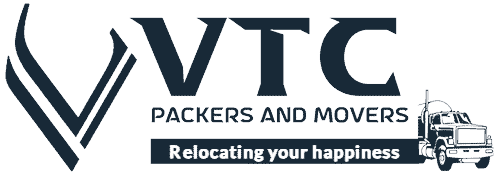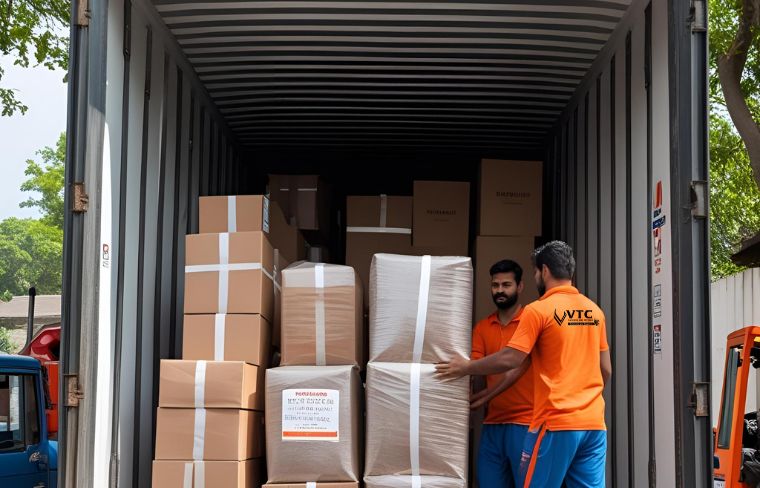What Sets Professional Movers Apart from Local Loaders
Whether you’re relocating across town or across the country, moving can be one of life’s most stressful experiences. That’s why choosing the right help matters. Often, people are torn between hiring professional movers and hiring local loaders. While both can lend a hand with the heavy lifting, they are not created equal.
Here’s a breakdown of what truly sets professional movers apart—and when it makes sense to invest in the extra expertise.
Training and Expertise
Professional movers don’t just show up and haul boxes. They’re trained in how to:
Properly lift heavy and fragile items
Pack efficiently and safely
Maneuver furniture through tight spaces
Load trucks to maximize space and minimize shifting
In contrast, local loaders are often day laborers or informal helpers. They may be strong and helpful, but rarely have the training that ensures safe handling of your possessions.
Equipment and Tools
Professional movers come fully equipped with:
Dollies and hand trucks
Furniture pads and stretch wrap
Straps and lifting harnesses
Ramps and protective floor coverings
Local loaders, on the other hand, might bring minimal gear—or none at all. That means your belongings may be moved without proper protection or tools, increasing the risk of damage or injury.
Licensing and Insurance
One of the biggest differences is legal accountability.
Professional moving companies are licensed, insured, and regulated.
They offer liability coverage in case something gets lost or broken.
They’re held to industry standards and consumer protection laws.
Local loaders may not carry insurance or formal credentials. If something gets damaged—or someone gets hurt—you could be left holding the bill.
Accountability and Reliability
Hiring a professional mover usually means:
A written contract with arrival times and service expectations
A team that shows up on time and sticks to the plan
A dispatcher or customer support team you can contact
Local loaders often operate casually. Schedules may be vague, communication limited, and reliability a gamble.
Damage Protection and Claims
Even with the best movers, accidents can happen. That’s why professional moving companies offer:
Valuation coverage or full-value protection
A clear claims process if anything is damaged or missing
Documentation to back up your losses
Local loaders typically don’t offer damage coverage—and even if they do, the process is often informal and unenforceable.
Full-Service Options
If you need more than just lifting, professional movers can handle:
Packing and unpacking
Loading and unloading
Transporting your belongings
Temporary storage solutions
Specialty moves (pianos, antiques, artwork)
Loaders are generally limited to helping with labor—no truck, no packing, and no extras.
Customer Experience and Professionalism
When you hire professional movers, you’re also paying for:
Friendly, uniformed teams
Clear communication and scheduling
Respect for your home and belongings
A smoother, less stressful move
Local loaders may be helpful in a pinch, but the overall experience can vary widely depending on who shows up that day.
Conclusion
At first glance, local loaders may seem like the more budget-friendly option. And for simple, short-distance moves with minimal risk, they can do the job. But for valuable items, long distances, or peace of mind, professional movers offer reliability, safety, and service that local loaders simply can’t match.
In short: you’re not just paying for muscle—you’re investing in care, protection, and a smoother moving experience. Know your needs, weigh the risks, and choose accordingly.
Pack essentials like ID proofs, medicines, chargers, snacks, toiletries, and a change of clothes. This bag should stay with you, not go in the moving truck.
Yes, reconfirm the booking details including the arrival time, address, contact person, and any special parking or access instructions.
Label all boxes clearly by room or category and supervise the loading and unloading process. Use color-coded labels for even better clarity.
Use an inventory list to check off items during unloading. Inspect boxes for any damage and report issues immediately.
Start with essentials: beds, bathroom supplies, lights, drinking water, and chargers to ensure you’re comfortable on the first night.
Start early, dress comfortably, stay hydrated, assign someone to care for kids or pets, and follow a clear checklist like this guide.





